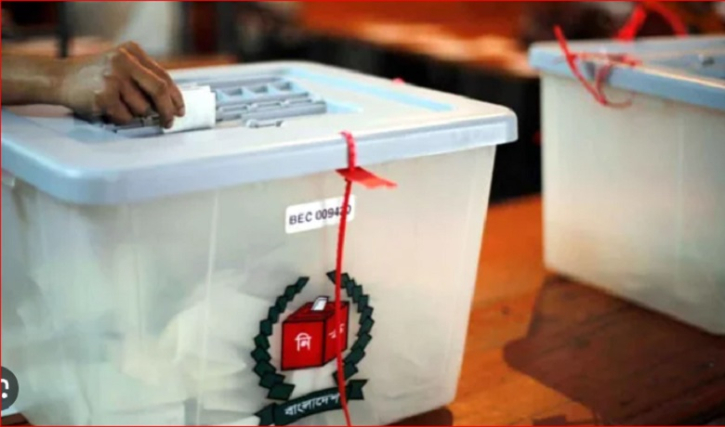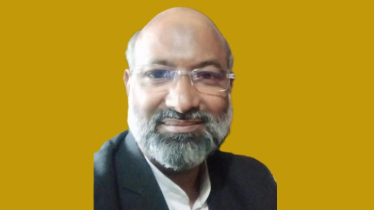
Photo: Collected
The Twelfth National Assembly Elections marked a significant juncture in the political landscape, providing a platform for diverse perspectives from the government, opposition parties, and civil society. This essay delves into the multifaceted views surrounding these elections, capturing the essence of the political dynamics at play.
The government, having secured victory in the elections, views the outcome as an endorsement of its policies and a mandate to continue its governance. From their standpoint, the election results validate the effectiveness of their initiatives, and they are likely to interpret it as a call for continuity. Government representatives may emphasize their achievements, promising to build on the successes and address any shortcomings. Additionally, they might highlight the voter turnout as a testament to the public's confidence in their leadership.
Opposition parties, on the other hand, may present a contrasting narrative. For them, the election results may signify a call for change and a reevaluation of current policies. They might critique the government's performance, raising concerns about issues they believe were inadequately addressed. Opposition perspectives could focus on alternative approaches and propose different solutions to the challenges facing the nation. Their reactions may also shed light on the perceived fairness of the electoral process, potentially raising issues of transparency or irregularities.
Civil society, acting as a crucial watchdog, plays a pivotal role in assessing the elections from an independent standpoint. Organizations and individuals within civil society may scrutinize the electoral process, looking into matters such as voter engagement, the conduct of candidates, and the overall fairness of the elections. Their perspectives could highlight areas that require improvement in the democratic process and advocate for increased transparency. Civil society might also articulate the concerns and aspirations of the broader public, acting as a bridge between the citizens and the political institutions.
While each segment—government, opposition, and civil society—brings its unique perspective, it is essential to recognize potential common ground. Shared concerns such as economic development, social justice, and national security may emerge, providing a basis for collaboration despite ideological differences. Conversely, divergent views can stimulate healthy debate and contribute to a vibrant democracy, pushing for accountability and responsiveness.
In the aftermath of the Twelfth National Assembly Elections, the nation stands at a crossroads. The government faces the task of translating its electoral mandate into tangible progress, addressing the concerns raised by the opposition and civil society. Opposition parties have an opportunity to constructively engage in policymaking, offering alternative visions for the nation. Civil society, through its watchdog role, can contribute to fostering a transparent and inclusive political environment.
The Twelfth National Assembly Elections have unleashed a spectrum of perspectives, each playing a vital role in shaping the future of the nation. It is in the interplay of these diverse viewpoints that the resilience of democracy is tested, and the potential for collective progress is realized. Bangladesh, a country in South Asia with a vibrant democracy, recently experienced an important event - winning an election. Elections provide citizens with the opportunity to choose their government representatives and have a say in the decision-making process. This composition will delve into the significance of winning an election in Bangladesh and discuss the government's attitude towards this achievement.
Winning an election is a remarkable moment for any country, as it reflects the democratic values that uphold the nation. In Bangladesh, winning an election signifies the trust and confidence the citizens have in the political leadership. It signifies the acceptance of the government's policies and promises, and the belief that they can bring about positive change and development for the nation.
The attitude of the government after winning an election plays a pivotal role in determining the success of their governance. It is expected that the government will display a proactive approach towards fulfilling the promises made during their campaign, actively engaging with the public, and implementing policies that address the needs and aspirations of the citizens. Transparency, accountability, and inclusivity are crucial elements that the government should prioritize to maintain the people's trust. In addition to these factors, a winning government should also focus on fostering a peaceful and tolerant atmosphere in the country. Upholding the principles of democracy and promoting dialogue among different political parties and groups can contribute to a healthier political environment. This enables the government to work collaboratively with opposition parties and encourage constructive criticism that ultimately leads to better governance.
The government's attitude towards maintaining law and order is of utmost importance. Ensuring the safety and security of citizens is a fundamental responsibility that should not be overlooked. Additionally, sustaining a strong economy, investing in education, healthcare, infrastructure, and addressing social issues are all crucial aspects that the government needs to focus on. It is important to acknowledge that every government faces challenges and constraints in their journey towards fulfilling their promises. It is essential for the government to remain transparent, communicate their progress effectively, and address any obstacles they encounter. The attitude of the government should be receptive to feedback and adaptive to changing circumstances.
Bangladesh, a thriving South Asian nation, has recently witnessed significant political developments with its recent election victory. However, in today's interconnected world, it is important to explore the potential influence of foreign powers on the outcome of such elections. This article aims to delve into the impact of foreign powers on Bangladesh's winning election and the implications it holds for the country's political landscape.
When it comes to the influence of foreign powers in elections, it is critical to consider both overt and covert means through which this influence can be exerted. Foreign powers can exert their influence using various methods, including financial support to specific political parties or candidates, diplomatic pressure, media manipulation, and information warfare.
One way foreign powers can influence election outcomes is through financial contributions to political parties or candidates. Such contributions can shape the campaign strategies, messaging, and overall visibility of specific political actors. While financial support does not guarantee victory, it can provide certain candidates or parties with an advantage over their competitors, potentially swaying the results. Foreign powers may also try to exert influence through diplomatic channels, applying pressure on the participating political actors to align with their interests or policies. These pressures can range from public endorsements of certain candidates to behind-the-scenes negotiations and agreements. Although diplomatic interference might not be visible to the public eye, it can subtly influence political decisions and alliances.
In the age of technology and social media, the power of the media cannot be underestimated. Foreign powers can leverage this power to shape public opinion through media manipulation, including spreading misinformation, propaganda, or selectively highlighting certain aspects of political campaigns or candidates. By swaying public sentiment, they can indirectly influence the electoral outcome. Another significant way foreign powers can influence elections is through information warfare. This involves hacking, cyber-attacks, and the spread of fake news or disinformation campaigns that aim to undermine the legitimacy of candidates or create confusion among voters. These tactics can disrupt the democratic process and manipulate public perception, potentially impacting the election's outcome.
Considering the potential influence of foreign powers on Bangladesh's winning election raises crucial questions about the country's sovereignty, democratic legitimacy, and the integrity of the electoral process. It is incumbent upon the government, political actors, and citizens to remain vigilant and ensure that the electoral system remains free from undue external influence.
To safeguard against external interference, it is essential for Bangladesh's citizens to be aware of the potential influences at play and critically evaluate information presented during election campaigns. Promoting media literacy and fostering an environment where citizens have access to reliable and unbiased information can strengthen the electorate's ability to make informed decisions.
Political actors and parties should emphasize transparency and accountability in their campaign financing, accepting contributions only from legal and transparent sources. Implementing robust regulations and oversight mechanisms can help maintain the integrity of the electoral process and protect against undue foreign influences. Given the transnational nature of electoral influence, international cooperation can play a vital role in preventing interference. Bangladesh can collaborate with other nations, regional organizations, and international bodies to develop frameworks and guidelines that discourage foreign powers from meddling in domestic elections.
Bangladesh's winning election is a notable achievement for its democracy. However, the influence of foreign powers on the electoral process poses potential challenges and threats. By promoting citizen awareness, ensuring political transparency and accountability, and fostering international cooperation, Bangladesh can fortify its democratic institutions and protect the integrity of its electoral system, allowing the will of its citizens to prevail.
In conclusion, winning an election in Bangladesh is a significant event that reflects the trust and confidence of the people towards the political leadership. The government's attitude after winning the election plays a vital role in determining the success of their governance. Focusing on transparency, inclusivity, accountability, and prioritizing the needs of citizens are key factors that contribute to effective governance. By maintaining a peaceful environment, ensuring law and order, and addressing social and economic issues, the government can positively impact the nation's development and progress.
Author : Scholar of Persian language & literature, University of Dhaka

.png)







